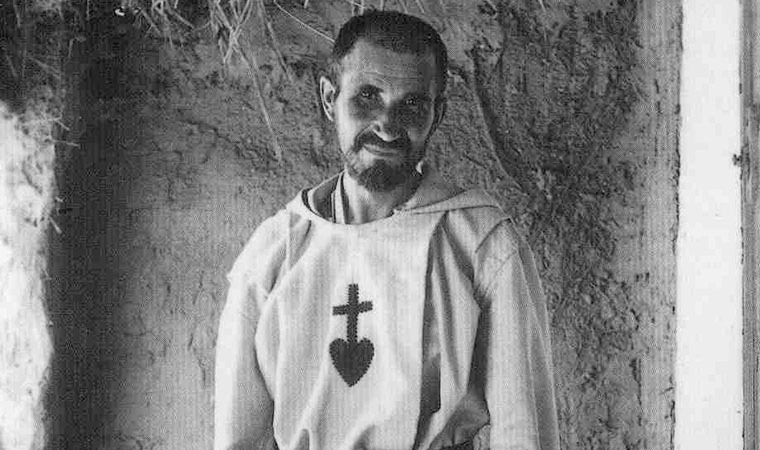St. Charles de Foucauld was born in France on September 15, 1858, to an aristocratic family. When he was six, his parents died, and he was raised by his Catholic grandfather.
As a teenager, Charles rejected his faith, and joined the French army. He received a large inheritance from his grandfather, and lived lavishly, enjoying food and parties. When he was sent to Algeria with the army, he brought his mistress, which led to his dismissal from the unit in Algeria. He eventually resigned from the army in 1882.
Charles went to Morocco disguised as a Jew, with the help of a rabbi. He spent a year there, and wrote a book about his experience.
He returned to France in 1886, and began practicing his Catholic faith again. He joined a Trappist monastery in Ardeche, and then transferred to one in Akbes, Syria. In 1897, he left the monastery to work as a gardener and sacristan for the Poor Clares in Nazareth and Jerusalem. In 1901, he returned to France and was ordained a priest.
Charles then went to Morocco, hoping to found a religious community that offered hospitality to all. No one joined him, and eventually a former army friend invited him to Algeria, to live with the Tuareg people.
Charles learned the native language, and wrote a Tuareg-French and French-Tuareg dictionary. He also translated the Gospels into Tuareg. A two-volume collection of his Tuareg poetry was published after he died.
In 1905, Charles came to Tamanrasset, where he spent the rest of his life. While visiting France to 1909, he established an association of laypeople who pledged to live according to the Gospels.
During World War I, attacks were made on the French living in Algeria. Charles and two visiting French soldiers were seized by another tribe during a raid and were shot and killed on December 1, 1916.
Charles de Foucauld was beatified on November 13, 2005. In May 2020, Pope Francis approved a second miracle attributed to Blessed Charles' intercession, which paved the way for his canonization on May 15, 2022.

